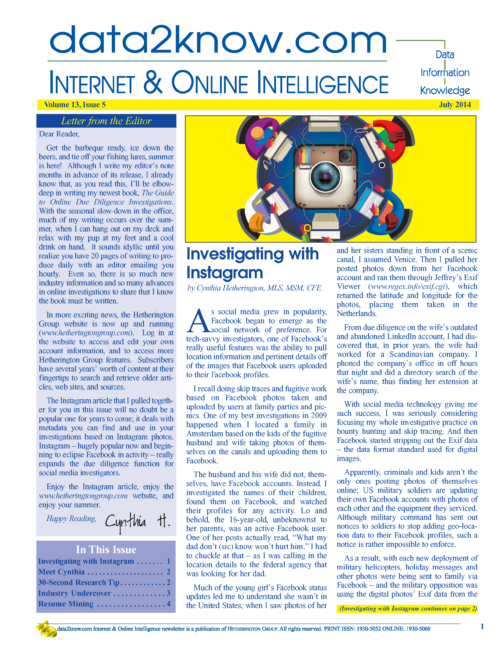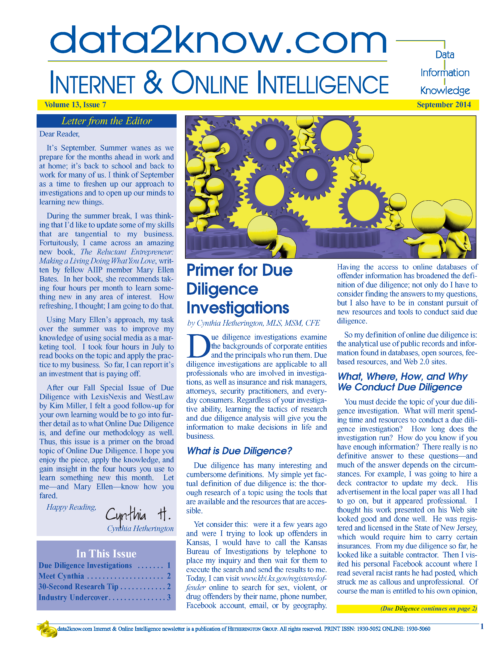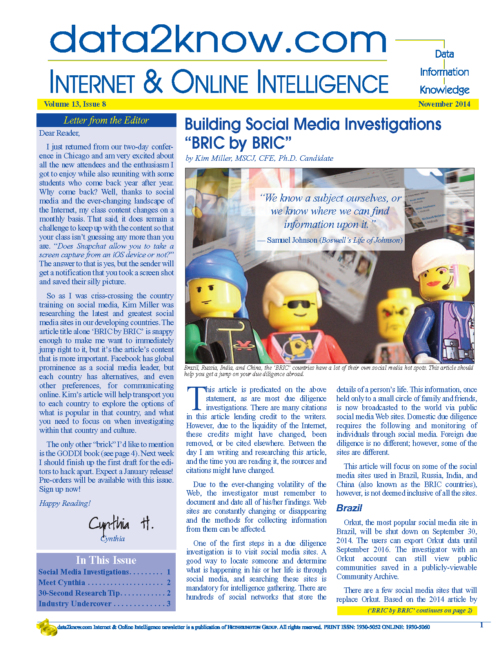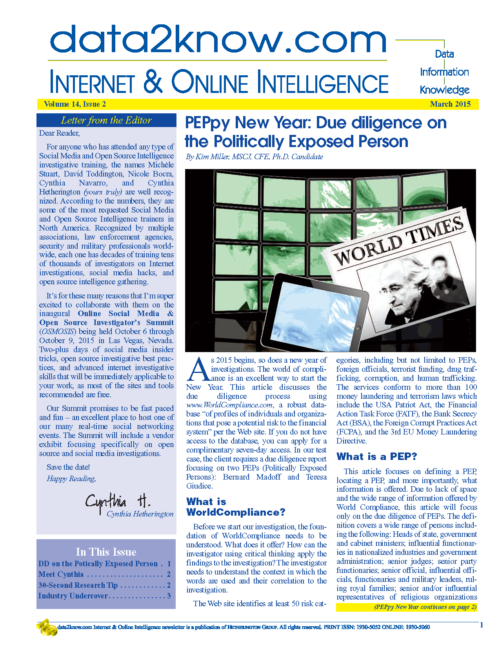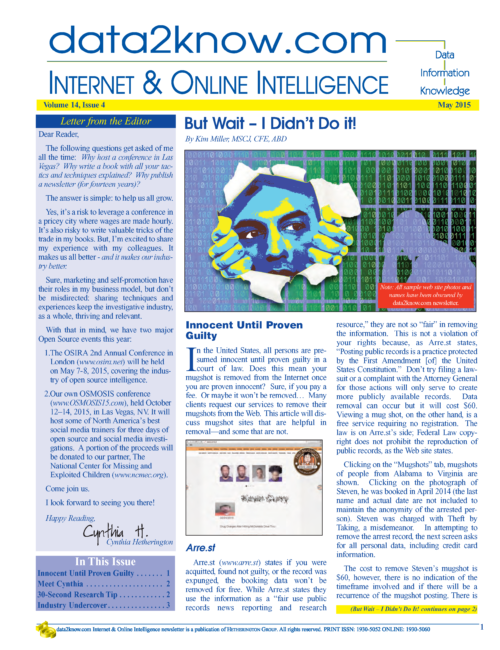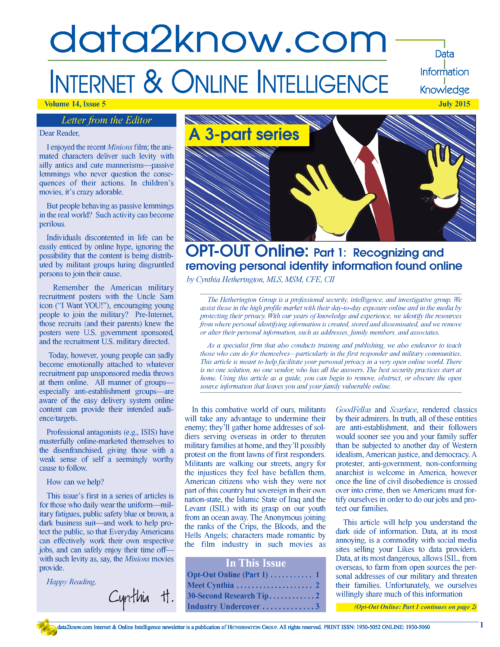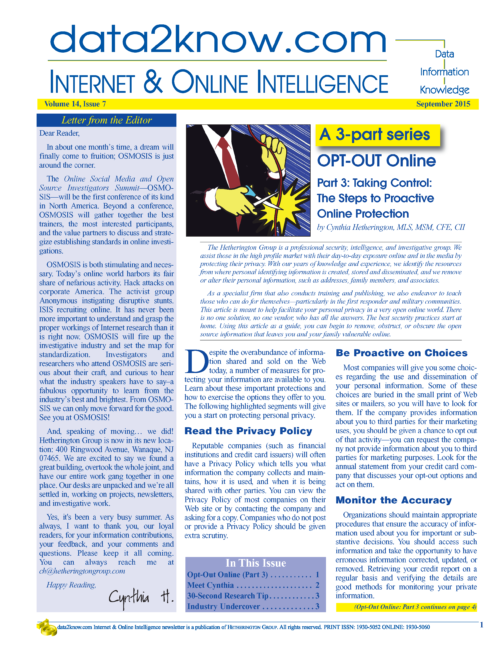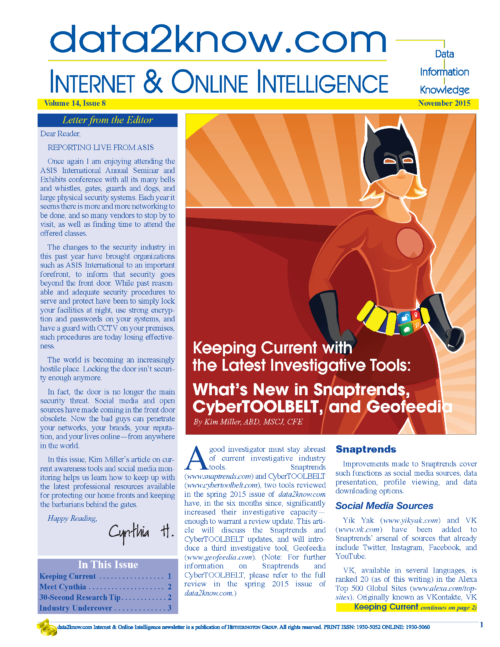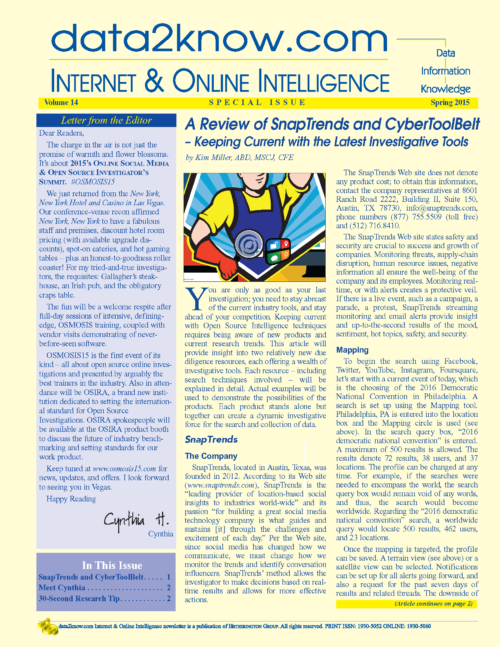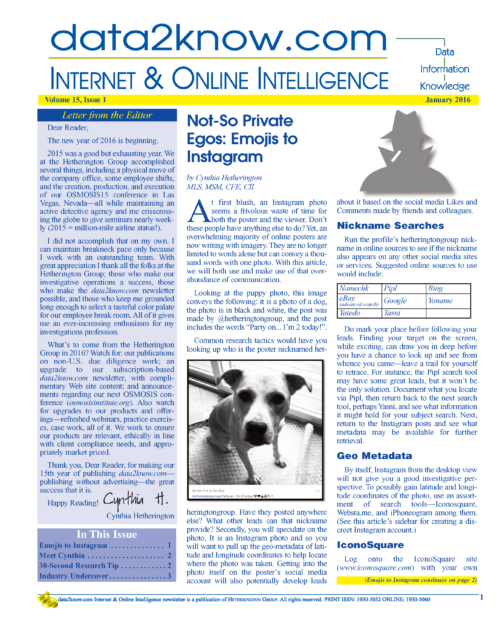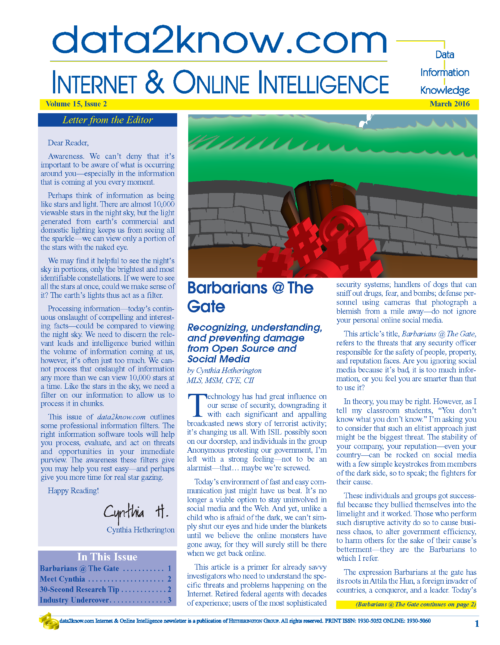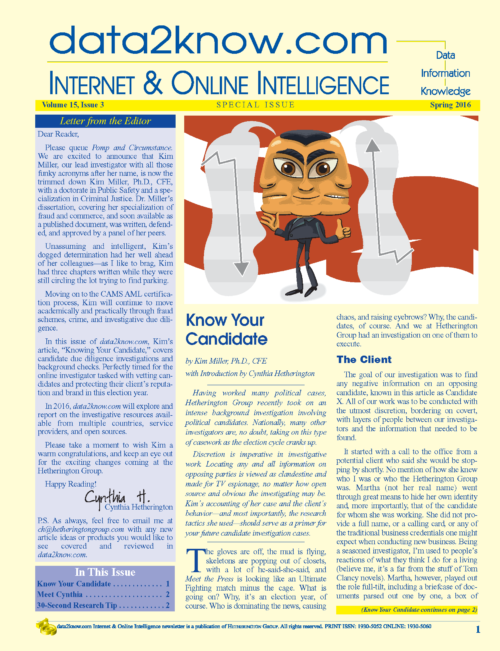-
Data2Know Vol. 13, No. 7
$15.00Primer for Due Diligence Investigations
Primer for Due Diligence Investigations will explain what due diligence is and how online due diligence can accomplish much with very little. We outline the phases of conducting proper research and the necessary skill sets that are indispensable for this work. -
Data2Know Vol. 13, No. 8
$15.00Building Social Media Investigations
Building Social Media Investigations will explore the alternatives in other countries that exist aside from Facebook. It will explore the preferred social media sites, online communication methods, and popular focus of investigation for both a country and it's culture. -
Data2Know Vol. 14, No. 2
$15.00Due Diligence on the Politically Exposed Person
This article discusses the due diligence process using www.WorldCompliance.com, a robust database" of profiles of individuals and organizations that pose a potential risk to the financial system" per the Web site. -
Data2Know Vol. 14, No. 4
$15.00But Wait - I Didn't Do It!
In the United States, all persons are presumed innocent until proven guilty in a court of law. Does this mean your mugshot is removed from the Internet once you are proven innocent? Sure, if you pay a fee. Or maybe it won't be removed... -
Data2Know Vol. 14, No. 5
$15.00Opt-Out Online: Part 1
This article will help you understand the dark side of information. Data, at its most annoying, is a commodity with social media sites selling your Likes to data providers. Data, at its most dangerous, allows someone from overseas to obtain personal addresses and threaten families. -
Data2Know Vol. 14, No. 7
$15.00Opt-Out Online: Part 3
Despite the overabundance of information shared and sold on the Web today, a number of measures for protecting your information are available to you. Learn about these important protections and how to exercise the options they offer to you. -
Data2Know Vol. 14, No. 8
$15.00Keeping Current with the Latest Investigative Tools
A good investigator must stay abreast of current investigative industry tools. Snaptrends and CyberTOOLBELT, two tools reviewed in the Spring 2015 issue of data2know.com have, in the six months since, significantly increased their investigative capacity—enough to warrant a review update. This article will discuss the Snaptrends and CyberTOOLBELT updates and will introduce a third investigative tool, Geofeedia. -
A Review of SnapTrends and CyberToolbelt
You are only as good as your last investigation; you need to stay abreast of the current industry tools, and stay ahead of your competition. Keeping current with Open Source Intelligence techniques requires being aware of new products and current research trends. -
Data2Know Vol. 15, No. 1
$15.00Not-so private egos: Emojis to Instagram
An overwhelming majority of online posters are now writing with imagery. They are no longer limited to words alone but can convey a thousand words with one photo. With this article, we will both use and make use of that overabundance of communication. -
Data2Know Vol. 15, No. 2
$15.00Barbarians @ The Gate
This article’s title, Barbarians @ The Gate, refers to the threats that any security officer responsible for the safety of people, property, and reputation faces. Are you ignoring social media because it’s bad, it is too much information, or you feel you are smarter than that to use it? -
Data2Know Vol. 15, No. 3
$15.00Know Your Candidate
Discretion is imperative in investigative work. Locating any and all information on opposing parties is viewed as clandestine and made for TV espionage, no matter how open source and obvious the investigating may be. Kim’s accounting of her case and the client’s behavior—and most importantly, the research tactics she used—should serve as a primer for your future candidate investigation cases.

